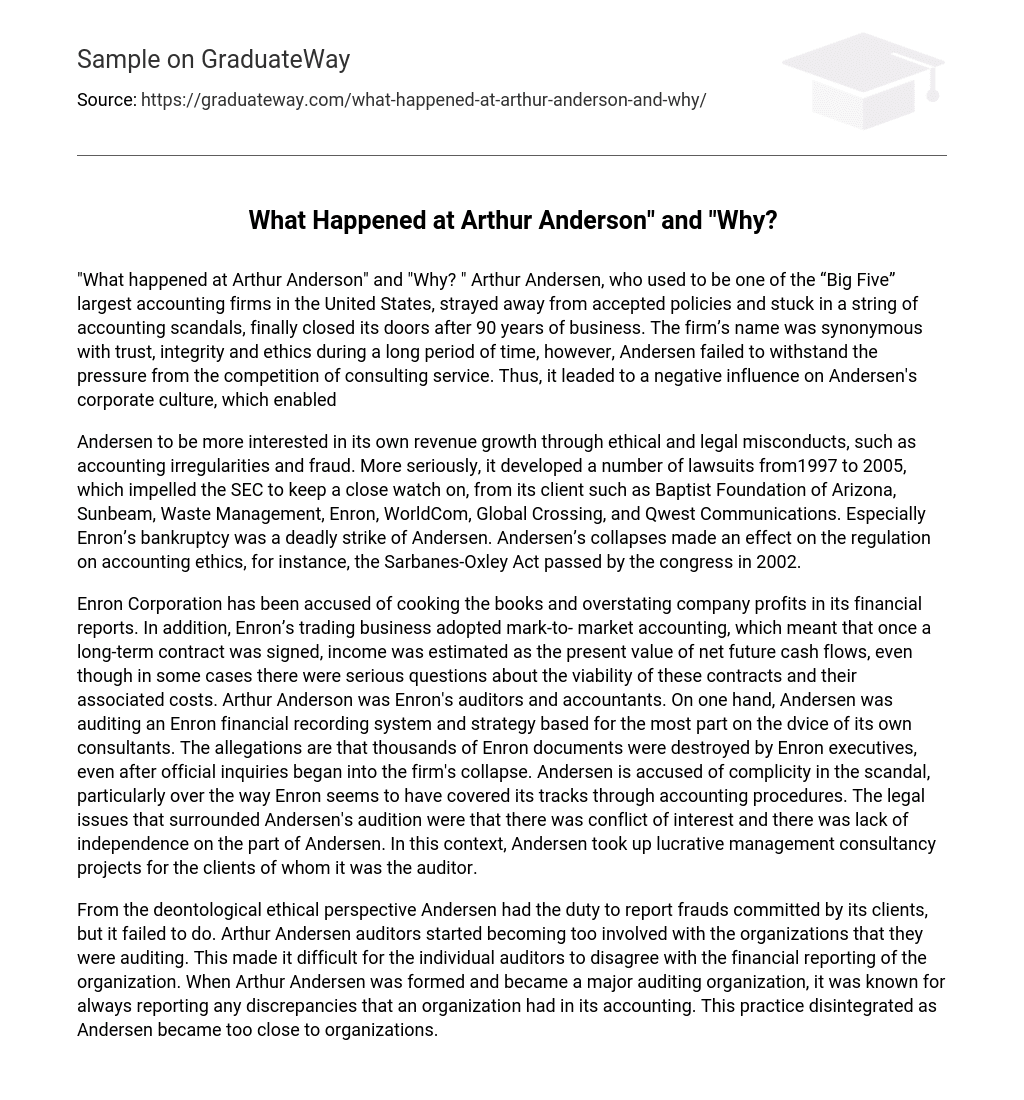“What happened at Arthur Anderson” and “Why? ” Arthur Andersen, who used to be one of the “Big Five” largest accounting firms in the United States, strayed away from accepted policies and stuck in a string of accounting scandals, finally closed its doors after 90 years of business. The firm’s name was synonymous with trust, integrity and ethics during a long period of time, however, Andersen failed to withstand the pressure from the competition of consulting service. Thus, it leaded to a negative influence on Andersen’s corporate culture, which enabled
Andersen to be more interested in its own revenue growth through ethical and legal misconducts, such as accounting irregularities and fraud. More seriously, it developed a number of lawsuits from1997 to 2005, which impelled the SEC to keep a close watch on, from its client such as Baptist Foundation of Arizona, Sunbeam, Waste Management, Enron, WorldCom, Global Crossing, and Qwest Communications. Especially Enron’s bankruptcy was a deadly strike of Andersen. Andersen’s collapses made an effect on the regulation on accounting ethics, for instance, the Sarbanes-Oxley Act passed by the congress in 2002.
Enron Corporation has been accused of cooking the books and overstating company profits in its financial reports. In addition, Enron’s trading business adopted mark-to- market accounting, which meant that once a long-term contract was signed, income was estimated as the present value of net future cash flows, even though in some cases there were serious questions about the viability of these contracts and their associated costs. Arthur Anderson was Enron’s auditors and accountants. On one hand, Andersen was auditing an Enron financial recording system and strategy based for the most part on the dvice of its own consultants. The allegations are that thousands of Enron documents were destroyed by Enron executives, even after official inquiries began into the firm’s collapse. Andersen is accused of complicity in the scandal, particularly over the way Enron seems to have covered its tracks through accounting procedures. The legal issues that surrounded Andersen’s audition were that there was conflict of interest and there was lack of independence on the part of Andersen. In this context, Andersen took up lucrative management consultancy projects for the clients of whom it was the auditor.
From the deontological ethical perspective Andersen had the duty to report frauds committed by its clients, but it failed to do. Arthur Andersen auditors started becoming too involved with the organizations that they were auditing. This made it difficult for the individual auditors to disagree with the financial reporting of the organization. When Arthur Andersen was formed and became a major auditing organization, it was known for always reporting any discrepancies that an organization had in its accounting. This practice disintegrated as Andersen became too close to organizations.





